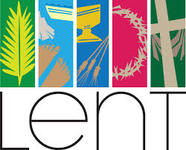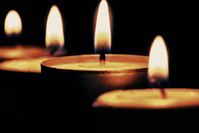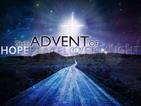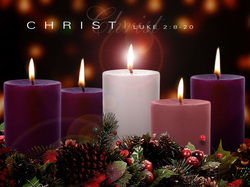First Baptist Church of Wayne, PA
 "As Lent is the time for greater love, listen to Jesus' thirst...'Repent and believe' Jesus tells us. What are we to repent? Our indifference, our hardness of heart. What are we to believe? Jesus thirsts even now, in your heart and in the poor -- He knows your weakness. He wants only your love, wants only the chance to love you." Blessed Teresa of Calcutta Lent is a period of fasting, praying, giving, and self-discipline in preparation of the season of Easter. It recalls and symbolizes Jesus' 40-day fast in the wilderness. The Lenten season begins on February 18th on Ash Wednesday and ends on Maundy Thursday. Many Christians throughout the world observe Lent Catholic, Orthodox, and Protestants benefit from this annual season of sacrifice and simplicity. While Sundays are typically excluded from fasting and abstinence restrictions, and are not numbered in the traditional "40 Days" of Lent, they are still part of the Lenten season, as can be seen from their Lenten themes. The primary purpose of Lent is to be a contemplative season of fasting, self-denial, spiritual growth, conversion, and simplicity. Lent, which comes from the Teutonic (Germanic) word for springtime, can also be characterized as a season of spiritual spring cleaning. It's time when we can commit ourselves to letting go and cleaning out the baggage that we all hoard in our spirits, minds, and souls. It's a time for taking spiritual inventory and then cleaning out those things which hinder our corporate and personal relationships with Jesus Christ and our service to him. However, we must remember that our Lenten disciplines are supposed to ultimately transform our entire person: body, soul, and spirit, and help us become more like Christ. Eastern Christians call this process theosis, which St. Athanasius describes as "becoming by grace what God is by nature." Traditionally, the tenets of Lent are fasting, almsgiving, scriptural reading, meditation and prayer. Because of various reasons we are not expected to uphold requirements of a strict 40 day fast. Most Protestant churches that celebrate Lent do not have official requirements. Lent is should never used as a way to impose religious legalism but to practice our spiritual liberation However, when we "give something up" for Lent, we are embracing a form of fasting, an excellent spiritual discipline. One can abstaining from meat, wine, oil, dairy products, sweets, caffeine, use of technology etc. Whatever you chose to do, the purpose is to make it a spiritual discipline to access the presence of God with Divine intent. We often think of the season of Lent as a time of "giving something up." But Lent should also be what we intentionally do as a sacramental spiritual practice. Daily prayers, almsgiving, serving. and scripture reading are spiritual disciplines that we all can do for the Lenten Season that will awaken us to God in new and fresh ways. As Pope Francis observed, "Lent comes providentially to reawaken us, to shake us from our lethargy."Whatever we "give up" let us "add" something in its place. It is my prayer for First Baptist that as we enter into this sacred season of Lent, as we as a congregation engage in the spiritual disciplines of fasting, almsgiving, meditation, scripture reading and prayer that we all we see spiritual transformation in our lives. This will impact not only our church but our families, communities, and wherever God leads us on our journeys. With Great Expectations, Pastor R. Grove
1 Comment
 “We cultivate love when we allow our most vulnerable and powerful selves to be deeply seen and known, and when we honor the spiritual connection that grows from that offering with trust, respect, kindness and affection." Brene’ Brown The Gift of Imperfection As the High and Holy seasons of Hanukah and Christmas are upon us, we are reminded anew of God’s continued work on behalf of humanity. The Light of God still shines even though darkness attempts to overtake it and God comes to us as Immanuel, God with us. There is no greater assurance that we need in the midst of troubling moments than the prophetic pronouncement, God is with us. That concept is quite interesting. We often have the proclivity to think of God as “above us.” But I love that fact that the God who was once above us come to tabernacle and domicile with us. God is with us through it all. The birth of Jesus under the most unlikely of circumstances teaches us that we too can be reborn, restored, and rejuvenated anywhere, anyplace, and anytime. Wherever we find ourselves, whatever struggles we have to encounter, God is with us and “Great Expectations” and new possibilities still exist. While this season is earmarked every year for expressions of joy, peace, and love, some of us have to encounter life at its worst during this moment. We should always take the commandant of Jesus of Nazareth seriously when he proclaimed, “Love your neighbor as yourself.” This declaration should move us to give the gifts of prayers, love, joy, peace, and hope to those who need it the most. The ethos of caring and reaching out to each other in the time of great difficulty is essential to the spirit of Christmastide. Finally, on behalf of Brandi and Camille, we count it a privilege and a joy to share in another Christmas fellowship with all of you. We are truly thankful for each of you, for each of you being a blessing to us with your time talent, and treasure, and allowing us to be a part of your lives. God is at work in the life of our church and our community and we are to always be in perpetual pursuit of God wherever God is. Just like the Christmas narratives in the Gospels, God shows up where we least expect it and when we least expect it. Out task is to have “Great Expectations” and always be ready to identify and connect with God. It’s an adventure we’re glad to share with you all. With Great Expectations, Brandi, Camille, and Pastor Grove  "Works of justice follow the road less traveled of Advent’s hope to pursue solutions for difficult problems. Hope comes through works of justice rather than simply performing works of charity." -Father Brian Cavanaugh In concert with the liturgical calendar today marks the first Sunday in the season of Advent. Advent is a season observed in many Western Christian churches as a time of expectant waiting and preparation for the celebration of the Nativity of Jesus at Christmas. The term is an anglicized version of the Latin word adventus, meaning "coming" .Latin adventus is the translation of the Greek word parousia, commonly used to refer to the Second Coming of Christ. For Christians, the season of Advent anticipates the coming of Christ from two different perspectives. The season offers the opportunity to share in the ancient longing for the coming of the Messiah, and to be alert for his Second Coming. It’s rather easy to get caught up in the trap of the “Americanized” view of this season that attempts to coerce us to spend what we don’t have in order get what we don’t need. The God of consumerism tries draws us away from the true and living God. In this moment of Advent I believe we are called to a greater level of service, giving, and self-sacrifice. In this season of “Great Expectations” we are to embody our Lord and Liberator Jesus of Nazareth in making a difference in our world. As I write I am thinking about our “Criminal Injustice System” that conveyed to us that Michael Brown’s life was not worthy of saving or his murderer deserving to be tried in a court of law. What does Advent and this season mean for his mother, father, and our sisters and brothers in Ferguson? Howard Thurman raises a similar question in his classic text “Jesus and the Disinherited”, “What does the religion of Jesus have to say to those whose backs are up against the wall?” We must speak to this reality and use our collective voices because #BlackLivesMatter. I am excited to begin a new Advent preaching series entitled “A Promised Gift.” When we cannot depend on anyone or anything else, we can trust on the promises of God. As we ready our hearts, spirits, and minds for this season, I feel the need to make a deeper commitment as husband, father, son, pastor, and public servant. My prayer is that we would share the liberating power of the promised gift that is Jesus Christ. With Great Expectations, Pastor R. Grove In accordance with the Liturgical calendar we stand upon the door steps of the Season of Lent. Lent commences on March 5th which is known in some Protestant circles as Ash Wednesday according to the Western Christian calendar. Occurring 46 days before Easter, it is a moveable fast that can fall as early as February 4 and as late as March 10. Ash Wednesday marks the beginning of this 40-day liturgical period of prayer and fasting or abstinence. Of the 46 days until Easter, six are Sundays. Sundays are not included in the fasting period and are instead "feast" days during Lent. I love the historical nature of Lent because it displays to us the enormity of the religion of Christianity and how we are connected to the larger family of our faith.
Lent (Latin: Quadragesima - English: Fortieth) is sacred time of religious observance that ends on Easter Sunday. During the Lenten season Christians as an act of preparation engage in the spiritual disciplines of prayer, penance, and repentance of sins, almsgiving, atonement and self-denial. Its institutional purpose is heightened in the annual commemoration of Holy Week, marking the death, burial and resurrection of Jesus, which recalls the tradition and events of the Bible beginning on Friday of Sorrows, further climaxing on Jesus' crucifixion on Good Friday, which ultimately culminates in the joyful celebration on Easter Sunday of the Resurrection of Jesus Christ. As we observe Lent as a local congregation this season can be used as sacred and significant time of spiritual renewal, rejuvenation, revival, restoration and refreshing. Typically during Lent it is customary to give up something during this time. Whether it's desserts, social media, technology and countless other things that may take our attention away from focusing on God; the purpose of the season of Lent is to further our own personal discipleship and empower our collective public witness as believers. Lent challenges us to deny ourselves in order to find ourselves closer and more open to the revelation of God in our lives. My prayer is that we would use the season of Lent as a moment of transformation as we fast, pray, offer penance to God, and every other spiritual practices that places God and humanity before our wants and needs. In Mark 8:34 our Lord and Liberator Jesus of Nazareth offered this disclaimer to anyone who seeks to follow Him, "And calling the crowd to him with his disciples, he said to them, "If anyone would come after me, let them first deny themselves". During the Lent let us deny ourselves as a discipline to access the power of God in our lives, our familes, our church, and our communities. -Pastor R.D.Grove God of our weary years,
God of our silent tears, thou who has brought us thus far on the way; thou who has by thy might, led us into the light, keep us forever in the path, we pray The Negro National Anthem James Weldon Johnson In 1926 Harvard PHD Carter G. Woodson created the precursor to Black History Month when the Association for the Study of Negro Life and History (An organization Woodson founded that was dedicated to the study and appreciation of African-American History.) announced the second week of February to be "Negro History Week.” This week was specifically chosen because it marked the birthday of both Abraham Lincoln and Frederick Douglass. The initial aim of “Negro History Week: was to coordinate an effort for the teaching of Black history in all Black educational institutions. With the wheels in motion, Negro History Week was met with enthusiastic response; it prompted the creation of black history clubs, an increase in interest among teachers, and interest from progressive whites. Negro History Week grew in popularity throughout the following decades, with mayors across the United States endorsing it as a holiday. The expansion of Black History Week to Black History Month was first proposed by the leaders of the Black United Students at Kent State University in February 1969. The first celebration of the Black History Month took place at Kent State one year later, in February 1970. In 1976 as part of the United States Bicentennial, the informal expansion of Negro History Week to Black History Month was officially recognized by the U.S. government. President Gerald Ford spoke in regards to this, urging Americans to "seize the opportunity to honor the too-often neglected accomplishments of black Americans in every area of endeavor throughout our history.” During the month of February we will begin a new sermonic series entitled “Stony The Road We Trod: The Faith Journey of Our Ancestors”. We will explore the fight for freedom of the Nation of Israel as the metanarrative for the fight for freedom of African-Americans. The first institution that was built and owned by African-Americans was the Black Church. The Black Church has been our “everything” when we did not have public access to “anything”. In the words of religious scholar C. Eric Lincoln the Black Church was the “tool of freedom”. The true genius of the Black Church is that it has been inclusive even while its very existence was birthed out racial exclusion. The true Black Church has never only for Black people. All of God’s children have always been welcomed to join us in this on going struggle against spiritual and social evil as we live lives committed to our Lord and Liberator Jesus of Nazareth. While Black History is everyday occurrence, we place special significance during this time because Black History IS American History. "God of our weary years, God of our silent tears, thou who has brought us thus far on the way; thou who has by thy might, led us into the light, keep us forever in the path, we pray"
The Negro National Anthem - James Weldon Johnson In 1926 Harvard PHD Carter G. Woodson created the precursor to Black History Month when the Association for the Study of Negro Life and History (An organization Woodson founded that was dedicated to the study and appreciation of African-American History.) announced the second week of February to be "Negro History Week." This week was specifically chosen because it marked the birthday of both Abraham Lincoln and Frederick Douglass. The initial aim of "Negro History Week: was to coordinate an effort for the teaching of Black history in all Black educational institutions. With the wheels in motion, Negro History Week was met with enthusiastic response; it prompted the creation of black history clubs, an increase in interest among teachers, and interest from progressive whites. Negro History Week grew in popularity throughout the following decades, with mayors across the United States endorsing it as a holiday. The expansion of Black History Week to Black History Month was first proposed by the leaders of the Black United Students at Kent State University in February 1969. The first celebration of the Black History Month took place at Kent State one year later, in February 1970. In 1976 as part of the United States Bicentennial, the informal expansion of Negro History Week to Black History Month was officially recognized by the U.S. government. President Gerald Ford spoke in regards to this, urging Americans to "seize the opportunity to honor the too-often neglected accomplishments of black Americans in every area of endeavor throughout our history." During the month of February we will begin a new sermonic series entitled "Stony The Road We Trod: The Faith Journey of Our Ancestors". We will explore the fight for freedom of the Nation of Israel as the metanarrative for the fight for freedom of African-Americans. The first institution that was built and owned by African-Americans was the Black Church. The Black Church has been our "everything" when we did not have public access to "anything". In the words of religious scholar C. Eric Lincoln the Black Church was the "tool of freedom". The true genius of the Black Church is that it has been inclusive even while its very existence was birthed out of racial exclusion. The true Black Church has never only for Black people. All of God's children have always been welcomed to join us in this on going struggle against spiritual and social evil as we live lives committed to our Lord and Liberator Jesus of Nazareth. While Black History is an everyday occurrence, we place special significance during this time because Black History IS American History.  “Christmas has lost its meaning for us because we have lost the spirit of expectancy. We cannot prepare for an observance. We must prepare for an experience.” Handel Brown This Sunday marks the beginning of the season of Advent on the Liturgical calendar. Advent is a season observed in many Western Christian churches as a time of expectant waiting and preparation for the celebration of the Nativity of Jesus at Christmas. The term is an anglicized version of the Latin word adventus, meaning "coming". Liturgically speaking, Advent is the beginning of the Western liturgical year and commences on Advent Sunday. The Latin adventus is the translation of the Greek word parousia, commonly used to refer to the Second Coming of Christ. For Christians, the season of Advent anticipates the coming of Christ from two different perspectives. The season offers the opportunity to share in the ancient longing for the coming of the Messiah, and to be alert for his Second Coming. This season of Advent coincides with our identity at First Baptist as a church of “Great Expectations.” Advent is a reminder of the “Great Expectations” that emboldened the people of God as they anticipated the arrival of the long awaited Messiah, our Lord and Liberator Jesus Christ. To the followers of Jesus of Nazareth, Advent is more than a season or a date on a calendar but Advent is a lifestyle, a mode of existing, a way of being. We are always anticipating and expecting the arrival of our Lord in our lives in every experience we are presented with. In the spirit of Advent, today also begins the launch of a new sermonic series entitled “The Power of Anticipation”. Anticipation is defined as “An expectation foreknowledge, intuition, and presentiment.” Anticipation is the first step that prepares us for Divine realization. In this series, we will explore the classic biblical narratives around the central theme of “anticipating” the birth of the Son of God. The Power of Anticipation, prayerfully, will inspire us and ignite our faith in such a way that we all will be reborn, restored, and revitalized because of the presence of Immanuel, God with us. With Great Expectations, Pastor Rashad D. Grove  October is Breast Cancer Awareness Month, which is an annual campaign to increase awareness of the disease. Breast Cancer is most common cancer found among women worldwide. Breast cancer is a disease in which malignant (cancer) cells form in the tissues of the breast. The damaged cells can invade surrounding tissue, but with early detection and treatment, most people continue a normal life. Age is a woman's single most important risk factor for developing breast cancer. Statistics show a woman living in the United States has a 12.5 percent, or a one in eight chance, of developing breast cancer in her lifetime. And African-American women are more likely to be diagnosed at a late stage, when the cancer is less treatable, leading to breast cancer death rates 38 percent higher for black women. Here are some facts about breast cancer: One in eight women will be diagnosed with breast cancer in their lifetime. Breast cancer is the most commonly diagnosed cancer in women. Breast cancer is the second leading cause of death among women. Each year it is estimated that over 220,000 women in the United States will be diagnosed with breast cancer and more than 40,000 will die. In 2013, an estimated 232,340 new cases of invasive breast cancer were expected to be diagnosed among US women, as well as an estimated 64,640 additional cases of breast cancer. That year, approximately 39,620 US women were expected to die from breast cancer. An informed church and community are the strongest witness for our Lord. My prayer for First Baptist is that we will put on the “whole army of God’ by arming ourselves with adequate knowledge and the life saving information that is at our disposal. We stand in sacred solidarity with the women of our church, communities, and families as embark upon this fight against breast cancer. |
Pastor Grove
I love dialog! So I encourage you, please leave a message. Let me know what YOU think! Archives
February 2015
Categories |
|
First Baptist Church of Wayne, PA
1012 Upper Gulph Road Wayne, PA 19087 (610) 688-9655 www.fbcwayne.org [email protected] |

 RSS Feed
RSS Feed